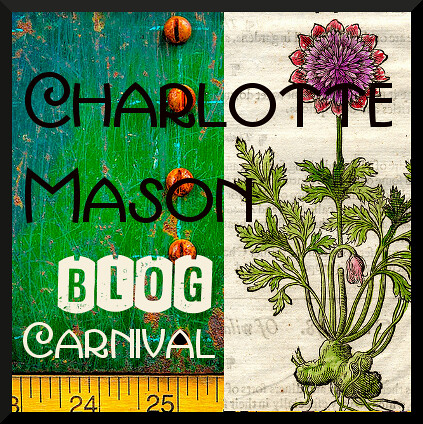Don't get me wrong, we have always narrated. We started copywork and studied dictation at the corresponding appropriate ages. But I didn't believe. I didn't really think that could possibly be all.
Well, somewhere along the road, I became a believer. Some of us must see to believe :) My boys are finally old enough, or is it that I've finally been on this living education road long enough to trust that Charlotte Mason knew what she was talking about? Whatever it is, I love her. Our home and school are SO much more enjoyable because of the influence of her thoughts and experience.

image courtesy of uffizi_c
I could say more, but time would fail me... so I'll just link to some highlights!
A quote from Elsie Kitching clearing up some misunderstandings of CM's use of Language Arts, applies in our day as well:
'I had a letter from the Headmistress of a large Secondary School the other day, in which she said, "I do not think there is any difference between our use of narration and yours, except that we have it by way of composition the next day, and you have it immediately." I could only answer that there was a very great deal of difference. Compositions may always be set on subjects, taken from the work, which have been narrated. This is not the repetition of the child's first effort of attention, but a fresh effort to use his mind in another way. The composition probably calls for a summary, or a portion of what the child has read, in depicting a character or in discussing the pros and cons of any point, with illustrations from the general reading of the week.
May I say that Miss Mason's Method is at present suffering from the prevalent idea that her Method is narration, and chiefly the narration of English. Her Method covers the whole of a child's school life, in fact the whole of his life; the habit of narration is the means by which we all make anything our own to which we give full attention.
It has been said, on the other hand, that the one effort of attention and the one narration implies that the child must never do anything a second time, which is again a very much mistaken interpretation of Miss Mason's teaching. The second time may, as I have said, come in the way of composition later on; it probably comes again in the end of term examination, and certainly, if the child is interested, frequently in after life. There are also in the upper Forms the interesting sidelights which one book or subject throws upon another, sometimes covering the same ground from another point of view.'
Helpful links:
AmblesideOnline's Language Arts Scope and Sequence
AO notes on Language Arts
We Narrate and then We Know
AO narration page
An Advisory member's narration journey.
Some helpful answers to common questions on narration.
Some Notes on Narration - a Parent's Review article
AO copywork page
One of our own copywork lessons at Fisher Academy
A dictation lesson from the Parent's Review
















4 comments:
I believe it, too! So nice to hear your thoughts on this.
Ring true,
Nancy
Just wonderin'... if you were to do it all over again, would you supplement or would you simply use CM's method alone?
What Sarah said and was there something specific that made you a believer or did it just develop over time? My oldest is 13 and been doing CM (mostly through AO) since age 7.5. I have been skeptical about LA methods working independent of additional resources FOR OUR FAMILY (antecdotal evidence leads me to believe there are many in which it works tremendously). Here's one reason, probably the most tangible, why. My girls take a standardized test yearly to meet homeschool requirements in our state. The one we use is quite basic and we do some prepping for it in the way of practicing multiple choice questions as it is just about the only time they encounter this format. Even with that, the 13 and 10 year old's scores are far below what I would like to see. Basic vocabulary is missed in a variety of forms (both within text and in stand-alone questions). I just don't get it. These are not challenging words and ones I would expect them to know, at least in context. This despite copywork, dictation, oral, and written narrations as per the AO schedule. Very frustrating. We have added supplemental LA tools, which adds to the already full schedule of the day. Not sure if they are really helping, quite truthfully. We have several areas similar to this above that makes me wonder if it is not working for my chidren, if I'm not doing something right, or if this is just them and no method would work perfectly, so at least they are getting the best offered. So hard to know.
Love your blog. Reminds me of Linda Fay's Higher Up and Further In (no longer published, but archives available) with all of the meaty posts.
I am a believer as well and it did take me a lot longer with my crew to get it "right". I think it is helping more now that we have so many families that started with CM and are finally getting older children to give us those great examples through blogs and this carnival.
Great post Amy.
Post a Comment